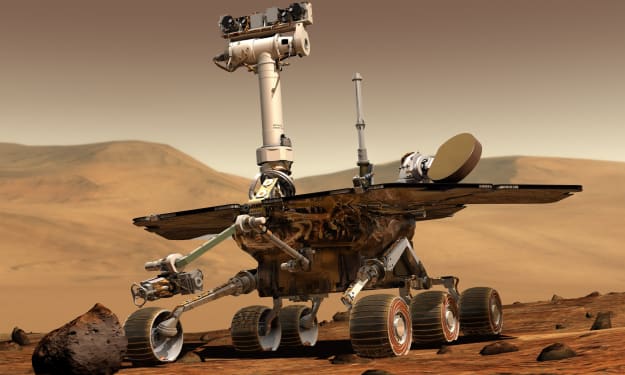
Mars, the fourth planet from the sun, has been a source of fascination for astronomers and space enthusiasts for centuries. In recent years, there has been a renewed interest in exploring Mars, with many space agencies and private companies gearing up for missions to the red planet. In this article, we will explore the future of Mars exploration and the potential benefits and challenges of these missions.
Mars has long been a target for exploration because of its proximity to Earth and its similarity in some respects to our own planet. It has a thin atmosphere, with temperatures that can range from as low as -195 degrees Fahrenheit (-125 degrees Celsius) to as high as 70 degrees Fahrenheit (20 degrees Celsius) in some locations. It also has polar ice caps and evidence of liquid water on its surface, which suggests the possibility of life.
The first successful mission to Mars was in 1965, when NASA's Mariner 4 spacecraft flew by the planet and sent back the first close-up images of its surface. Since then, there have been numerous missions to Mars by different space agencies, including NASA, the European Space Agency (ESA), and the Indian Space Research Organization (ISRO).
The next few years are set to be an exciting time for Mars exploration. NASA's Mars 2020 mission, which launched in July 2020, successfully landed the Perseverance rover on Mars in February 2021. The rover's primary mission is to search for signs of past microbial life on Mars, as well as to collect and cache samples of Martian rock and soil for later return to Earth.
In addition to the Perseverance rover, there are several other missions planned for the near future. NASA's Ingenuity helicopter, which is carried by the Perseverance rover, made history on April 19, 2021, when it completed the first powered flight on another planet. In 2022, NASA's Psyche mission will launch to explore a metal-rich asteroid that could provide insight into the early history of the solar system.
In 2024, SpaceX, the private space exploration company founded by Elon Musk, plans to send its Starship spacecraft to Mars. The company's ultimate goal is to establish a permanent human settlement on Mars, which could serve as a backup for humanity in case of a catastrophic event on Earth. Other private companies, such as Blue Origin and Boeing, are also developing spacecraft that could potentially be used for Mars missions.
Despite the excitement surrounding Mars exploration, there are several challenges that must be overcome. One of the biggest challenges is the harsh Martian environment, which is characterized by low atmospheric pressure, high radiation levels, and extreme temperatures. These conditions make it difficult for humans to survive on the planet without protective equipment and infrastructure.
Another challenge is the long distance between Earth and Mars, which can take anywhere from six to eight months for a spacecraft to travel one way. This makes it difficult to provide support and resources for missions in real-time, and any problems that arise during a mission may take months to address.
Despite these challenges, there are many potential benefits to exploring Mars. One of the most significant benefits is the opportunity to search for signs of past or present life on the planet. If life is found on Mars, it could provide insight into the origins of life in the universe and could help us better understand the potential for life on other planets.
Mars exploration could also provide valuable scientific data on the geology, climate, and atmosphere of the planet. This information could help us better understand the history of the solar system and the processes that shaped it.
Mars exploration and eventual settlement would have numerous benefits and practical applications for human spaceflight. Here are a few examples:
Advancing technology: The technological advancements required for a successful mission to Mars would likely have widespread applications beyond space exploration. For example, developing advanced life support systems, radiation shielding, and autonomous robotics for Mars missions could have applications in fields like medicine, transportation, and manufacturing.
Enhancing our understanding of human health: Human spaceflight presents numerous health challenges, including exposure to radiation, prolonged weightlessness, and isolation. Studying the effects of long-term spaceflight on the human body, as well as developing countermeasures to these effects, could have significant benefits for healthcare on Earth.
Developing sustainable infrastructure: A successful Mars settlement would require the development of sustainable infrastructure, including power generation, water and waste management, and food production. Developing these systems could have important implications for sustainable living on Earth, especially in areas with limited resources.
Inspiring future generations: Mars exploration has the potential to inspire future generations to pursue careers in science, technology, engineering, and math (STEM) fields, as well as instilling a sense of wonder and curiosity about the universe.
Overall, Mars exploration could have far-reaching benefits for humanity, beyond just the scientific advancements it would enable.
About the Creator
Hanaff Jr
Just Writer...






Comments
There are no comments for this story
Be the first to respond and start the conversation.